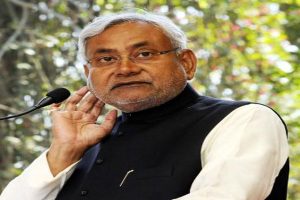
Patna. A few months before the Bihar elections to be held later this year, there is restlessness within JDU. The party leadership had declared its support for the Wakf Amendment Bill, which was passed in both the houses, 288 votes in the Lok Sabha and 128 votes in the Rajya Sabha.
Soon after the bill was passed in the Lok Sabha, five Muslim leaders of the party resigned, while some others have expressed their disagreement with the bill.
Resignations of JDU leaders
JDU Minority Front state secretary Mohammad Shahnawaz Malik, Mohammad Qasim Ansari, Tabrez Siddiqui Aligarh, Nadeem Akhtar and Raju Nair have already resigned. While JDU general secretary and former Rajya Sabha MP Ghulam Rasool Balyaavi has also resigned. On the other hand, JDU MLC Ghulam Gaus has spoken against the party line.
This concern of JDU leaders is based on the fear of losing the Muslim vote bank before the Bihar elections. Although this fear may be valid at first glance, the figures present a different picture. While in the 2014 Lok Sabha elections, Nitish Kumar had secured a large share of Muslim votes by staying away from the Modi-led NDA, which caused a dent in the primary vote bank of RJD. But the study of the situation after 2015 presents a different picture.
When Nitish was in the anti-Modi camp in the 2014 Lok Sabha and 2015 assembly elections, he had a good hold among Muslim voters.
According to the CSDS Lokniti post poll survey, in the 2014 Lok Sabha elections when JDU contested in alliance with the Communists, it got 23.5% of the Muslim votes, while in the 2015 assembly elections when Nitish was part of the Mahagathbandhan, the alliance got nearly 80% of the Muslim votes.
Figures changed after 2015
Things changed after 2015 when he joined the Modi-led NDA alliance. In the 2020 assembly elections, the JDU alliance could only secure 5% of the Muslim votes. This was a steep decline compared to the votes JDU got due to the RJD alliance in 2015 and in the 2019 Lok Sabha elections, only 6% of Muslims voted for the JDU alliance as compared to RJD’s 80%.
The same situation continued more or less in the 2024 Lok Sabha elections, when only 12% of Muslims voted for the JDU alliance, which was about 50% less than the situation in 2014.
At the same time, according to the 2011 census, the Muslim population of Bihar was recorded at 1,75,57,809 (1.75 crores), which is 17% of the total population of the state.
According to the 2024 Lok Sabha data, there are a total of 7,64,33,329 (7.64 crores) registered voters in Bihar. If we add the proportion of Muslims according to the 2011 census, which is 17% of the total population, then the estimated number of Muslim voters in Bihar will be around 1,29,93,667 (1.29 crores).
Who did Muslims vote for in Bihar?
Alliance Lok Sabha Elections 2024 Assembly Elections 2020 Lok Sabha Elections 2019 Assembly Elections 2015 Lok Sabha Elections 2014
JDU Alliance 12% 5% 6% 80% 23.5%
India Block/MGB 87% 76% 80% 65%
Now if we look at the Muslim majority districts of Bihar, we take four districts, where the Muslim population is more than 30% of the total population. In total, these districts are spread across 24 assembly constituencies, out of which JDU won 7 districts in the 2015 Lok Sabha elections when it was a part of the Mahagathbandhan. While fighting with the NDA in 2020, JDU won only three districts.
This clearly shows that whenever JDU has joined hands with the PM Modi-led NDA, it has lost the support of Muslims.
Muslim majority districts in Bihar (Census 2011 and Election Commission of India)
Percentage of Muslim population of districts Assembly constituencies held by JDU after 2020 Assembly constituencies held by JDU after 2015
Kishanganj 67.98% 0/4 2/4
Katihar 44.47% 1/7 0/7
Purnia 38.46% 1/7 2/7
Araria 42.95% 1/6 3/6
Total 3/24 7/24
Apart from this, we also see how different the performance of Muslim candidates with JDU slogans has been with PM Modi-led NDA and how they have performed without NDA.
According to election data, in the year 2015, JDU had fielded seven Muslim candidates and five of them won the election. However, despite fielding 11 Muslim candidates in 2020, none of the JDU candidates could emerge as winners.
How many Muslim candidates contested the elections and how many won
This clearly shows that JDU lost its Muslim vote bank after 2015 by allying with the BJP. Not only this, fielding a large number of Muslims in 2020 also did not prove to be effective for Nitish Kumar’s party.
Now this theory of JDU being deprived of Muslim votes due to supporting the Waqf Amendment Bill will be proved wrong, because the party never had a Muslim vote bank after 2015.
©2025 Agnibaan , All Rights Reserved